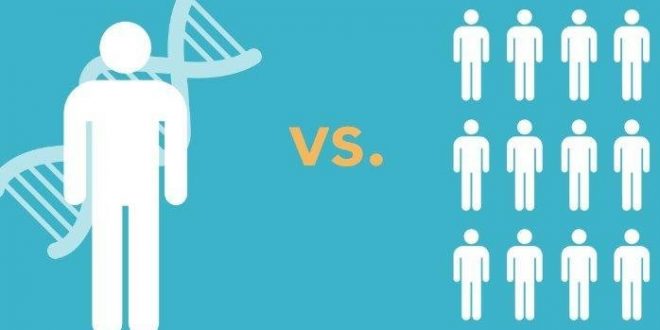Written by: Kui Jia
Can you imagine a day where people can receive personalized drugs and medical treatment tailored to their individual patient information such as genetic content, sex, ages, and even their own lifestyle history? Well, this is the concept of “precision medicine” (PM), a new cutting edge medical model that many biomedical scientists are researching currently.
Modern medicine has existed for hundreds of years but was only designed to provide treatment for the “average” patient’s symptoms, taken from hundreds of thousands of individual cases; essentially, a drug is designed as a one-size-fits-all solution for a given illness regardless of the individual differences between patients. Remember the days when same drug led to a speedy recovery for person A but resulted in side effects for person B? Not anymore! PM can be completely customized based on a person’s genetic information, family’s medical history, and patient’s response to his medicine which can be tracked and collected as part of the PM database for each individual patient. Undoubtedly, this innovation can greatly improve the efficiency of drugs and medical treatment to billions of human beings.
It’s worth it to point out that while every human innovation brings benefits, challenges will arise at the same time, and PM is not an exception here. For example, the very foundation of PM lies in capturing and sharing a great amount of private healthcare and medical data from individual patients to medicine manufacturers and healthcare providers. So far, this information includes individual genetic information, family history, lifestyle information including daily diet, race, culture, and even religious information. However, in order to improve the accuracy of precision medicine, the patient’s response to their medicine and/or treatment results also must be shared with the medicine producer and healthcare providers. This raises a huge concern around patient privacy. Health insurance may also have to change its policy models as there is no more averaged data to describe a one-size-fits-all medical solution. Most importantly, a new regulation process needs to be established for the government to provide healthcare and PM for its people.
The good news is that the United States National Precision Medicine Initiative, founded under former President Obama and the 21st Century Cures Act of 2016 encourages the FDA to develop new regulatory approaches for the oversight of genomic technologies as part of the Precision Medicine Initiative. People should stay optimistic about this great medical breakthrough in human history.
 Tempus Magazine By Students, For Students
Tempus Magazine By Students, For Students 



